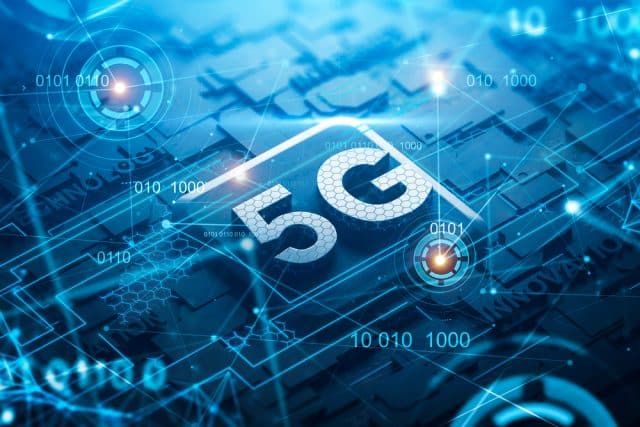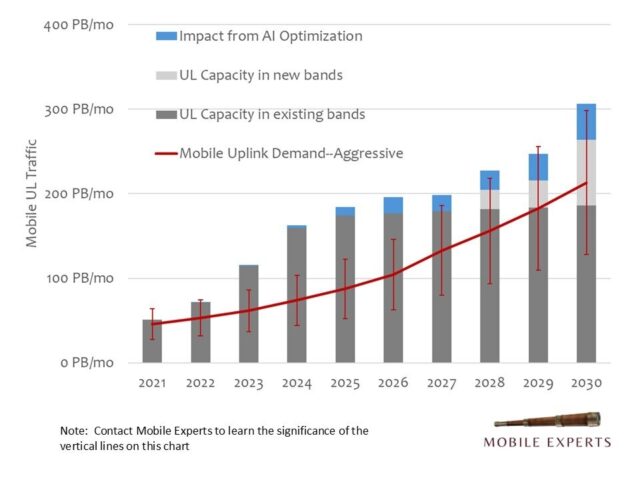New research shows AI will both strain and strengthen future 5G networks

Artificial intelligence is coming for your bandwidth. As AI-powered apps expand on smartphones and connected devices, the pressure on 5G networks is expected to increase. But new research from Mobile Experts suggests that the same technology creating network demand will also help improve performance.
This month, the Campbell, California-based analyst firm released a series of surveys, models, and reports examining how AI and machine learning will impact mobile networks through 2030.
SEE ALSO: Business users can soon get a Surface Laptop 5G from Microsoft
The research explores both sides of the equation: AI as a new source of traffic and AI as a tool for enhancing 5G network capacity.
The first area of analysis focused on consumer smartphone apps. Today’s AI assistants, such as ChatGPT, transmit mostly text and low-data content, putting little pressure on networks.
According to Mobile Experts, the next generation of apps will use persistent video, higher frame rates, and augmented reality, all of which dramatically increase data demand.
This trend could create new challenges, especially in dense urban areas. When users begin relying on AI-driven tools for real-time video analysis or AR overlays, uplink bandwidth may fall short of what is needed.
The firm's modeling suggests uplink traffic will rise faster than downlink in these cases, which could strain current infrastructure.

“New applications are coming to your smartphone, taking advantage of on-device AI processing capability,” said Joe Madden, Principal Analyst at Mobile Experts. “We have been able to identify which apps will run on your phone, and which ones will require network connectivity. The frame rates, resolution, and persistence of video inputs will have a profound impact on the 5G network.”
While consumer-facing apps are expected to contribute to growing demand, the research also explored how AI can be applied within the network itself. Mobile Experts evaluated real-time and non-realtime models for optimizing the radio access network.
These include functions like channel state estimation, beam coordination, and traffic steering, all aimed at improving network throughput and performance.
5G optimization
This use of AI is expected to increase the overall capacity of 5G networks, especially in high-density zones. The firm developed a detailed model that compares AI-driven traffic demand with potential capacity improvements from network-side AI optimization.
The findings suggest that, for the near term, AI-based optimizations can create more capacity than new apps will consume.
“Our research investigates the holistic impact of AI on 5G networks,” continued Mr. Madden. “Will AI apps consume all of the bandwidth? Or will AI create more bandwidth in the network? Which impact will be greater? We now have answers.”
The full report series includes a consumer survey, app usage forecast, cost modeling for AI-enabled network infrastructure, and a five-year forecast covering software, hardware, and training revenue tied to AI-for-RAN implementations.
A working Excel model is also included for subscribers, allowing network planners to simulate changes in traffic and capacity based on different usage scenarios.
Mobile Experts emphasizes that while current AI traffic from consumers is manageable, enterprise and industrial use could become the next pressure point.
Applications in drones, autonomous vehicles, and AI-powered video monitoring may introduce persistent high-resolution video streams into the network. These types of use cases are expected to grow rapidly and could eventually outpace the gains made through AI optimization.
The firm plans to continue studying enterprise and IoT-related AI video use over the next two years to understand how it might affect network load in the longer term.
What do you think about AI pushing and solving mobile network challenges at the same time? Let us know in the comments.
Image credit: denisismagilov/depositphotos.com
